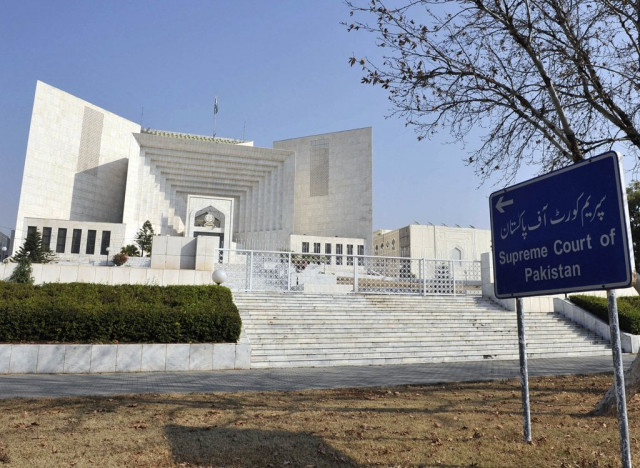Basic law is bail, not jail: SC
Top court say witnesses delayed their statements in murder case by over a year losing their sanctity

The Supreme Court has urged for taking liberal view in pre-arrest matters because “basic law is bail, not jail”, holding that denial of liberty of a person was a serious step.
“Therefore, courts should apply judicial mind with deep thought for reaching a fair and proper conclusion,” read a judgment authored by Justice Sayyed Mazahar Ali Akbar Naqvi in a pre-arrest bail matter of an accused involved in a murder case.
The three-judge bench of the apex court led by Justice Umar Ata Bandial heard the case.
“Such exercise should not be carried out in vacuum or in a flimsy or casual manner as that would defeat the ends of justice because if the accused is ultimately acquitted at the trial then no reparation or compensation can be awarded to him for the long incarceration he had already suffered,” it added.
“Even none of the provisions of CrPC [Code of Criminal Procedure] provide any remedy to be claimed by the petitioner for its compensation.”
Justice Naqvi noted in the verdict that an accused was always considered a “favourite child of law”.
"When all these aspects are considered conjointly on the touchstone of principles of criminal jurisprudence enunciated by superior courts from time to time, there is no second thought to this proposition that the scope of pre-arrest bail indeed has been stretched out further which impliedly persuade the courts to decide such like matters in more liberal manner."
He observed that because basic law was bail not jail, otherwise the liberty of a person was a precious right, which had been guaranteed by the Constitution.
The court said that it was conscious of the fact that the petitioner had assailed the instant petition seeking extraordinary relief of pre-arrest bail from this court in a murder case, which entailed capital punishment.
READ Supreme Court ‘tough’ on govt workers
"The superior courts of the country are hesitant to extend relief in such cases and the same is exercised with due care and caution sparingly. However, this court, being the ultimate court of justice, is supposed to do complete justice in the interest of safe administration of criminal justice and whenever it feels that the case of the prosecution is based upon trump up charges or mala fides it comes for the rescue of the innocent persons."
Otherwise, the judgment read, a duty was cast upon the courts of law to provide protection of law to the innocent against whom frivolous litigation had been lodged.
The court referred to a 1989 judgment rendered by a five-member bench wherein it broadened the scope of pre-arrest bail. It held that while granting extraordinary relief of pre-arrest bail, merits of the case can be touched upon. Hence, virtually the scope of pre-arrest bail has been extended by the court while rendering the judgment.
"Even otherwise, this aspect of the law further lends support from the bare reading of provisions of Section 497/498 CrPC. The word ‘further inquiry’ has wide connotation. Interpretation of criminal law requires that the same should be interpreted in the way it defined the object and not to construe in a manner that could defeat the ends of justice", the judgment read.
In the instant case, the court said that it could not lose sight of the fact that the petitioner was cited as a prosecution witness while lodging the crime report with a role of facilitating the evacuation of the deceased to the hospital by calling Police Emergency Helpline ‘15’ and Rescue 1122.
READ Supreme Court divided on question of pre-arrest bail
"Apart from this, it is also admitted fact that the prosecution kept mum for almost one year and it was on October 22, 2020 that Masooma Bibi was introduced by the prosecution who made a statement under Section 161 of the CrPC claiming herself to be an eyewitness of the occurrence and levelled the allegation of causing two successive fire shots on the person of the deceased to the petitioner.”
The court further noted that the statement of Masooma Bibi was further supplemented by another eyewitness. However, it recorded with an inordinate delay of one year and four months.
"[The] delayed recording of statement of prosecution witnesses and its value has been enunciated by now as universal application where it is now established principle of law that any statement of the prosecution witnesses if recorded at a belated stage, it loses its sanctity."


















COMMENTS
Comments are moderated and generally will be posted if they are on-topic and not abusive.
For more information, please see our Comments FAQ